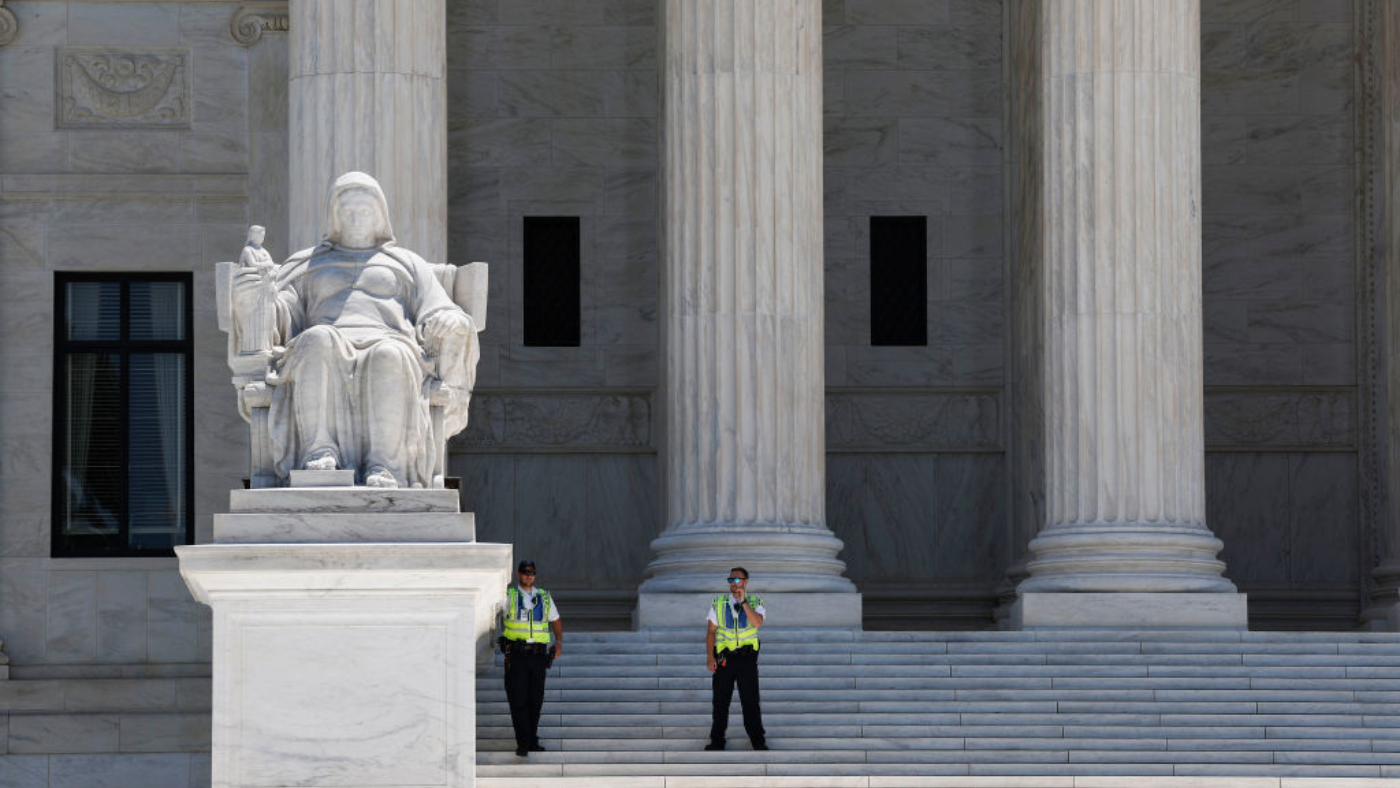The right to satire: is making fun of the police really a crime?
The Onion is defending the right to parody in the US Supreme Court

A free daily email with the biggest news stories of the day – and the best features from TheWeek.com
You are now subscribed
Your newsletter sign-up was successful
The Onion claims to be “America’s finest news source”, said Dave Pell on NextDraft. And it is, if you’re after satire. Its news parodies “hit the mark like nothing else”. The classic example is its famous headline on the subject of US school shootings: “No Way To Prevent This, Says Only Nation Where This Regularly Happens.”
Now the publication itself is in the news: it has gone to the Supreme Court to defend the right of everyone to poke fun at officialdom. Last week, it filed a court brief in support of Anthony Novak, an Ohio man who was arrested and jailed for four days in 2016, after he created a spoof of his local police department’s Facebook page.
The page suggested that the department had outlawed the feeding of homeless people, and discouraged job applications from minorities. Novak later sued the city for damages, claiming his First Amendment right to free speech had been violated. A federal judge dismissed his lawsuit earlier this year, and an appeals court upheld that decision.
The Week
Escape your echo chamber. Get the facts behind the news, plus analysis from multiple perspectives.

Sign up for The Week's Free Newsletters
From our morning news briefing to a weekly Good News Newsletter, get the best of The Week delivered directly to your inbox.
From our morning news briefing to a weekly Good News Newsletter, get the best of The Week delivered directly to your inbox.
The Onion’s Supreme Court brief is, as you’d expect, not entirely serious, said Jacob Sullum in Reason. In it, the publication claims to have “a daily readership of 4.3 trillion”, and to be “the single most powerful and influential organisation in human history”. But the humour is being deployed with a purpose.
Novak was prosecuted under an Ohio law that forbids using a computer to “disrupt, interrupt, or impair” police services; one of the issues in his case is whether people might reasonably have believed that his spoof site was the real thing.
The courts cited the fact that he had deleted comments describing the page as fake. But, as The Onion points out, parody often relies on first “tricking people into thinking it’s real”, then revealing the joke by piling on absurdities. To demand that people “pop the balloon in advance” by attaching “parody” labels to their work would, argues the brief, neuter satire as a political tool.
This is an important debate, given the key role humour plays in US politics today, said Nicole Hemmer on CNN. “Americans have come to expect politics to come wrapped in parodies, punchlines and primetime pizazz.” Since the 1980s, comedy has become “a primary mode of political expression”; young people get much of their news from programmes such as The Daily Show.
A free daily email with the biggest news stories of the day – and the best features from TheWeek.com
At a time when politics itself has grown increasingly absurd – one Republican congresswoman, Marjorie Taylor Greene, has publicly mused about whether forest fires were started by Jewish space lasers – parody has become harder to pull off.
As The Onion noted in its brief: “Much more of this, and the front page of The Onion would be indistinguishable from The New York Times.” The need for parody is greater than ever: to shine a light on ludicrous claims and to keep people engaged in politics. America must guard against any curbs on it.
-
 How the FCC’s ‘equal time’ rule works
How the FCC’s ‘equal time’ rule worksIn the Spotlight The law is at the heart of the Colbert-CBS conflict
-
 What is the endgame in the DHS shutdown?
What is the endgame in the DHS shutdown?Today’s Big Question Democrats want to rein in ICE’s immigration crackdown
-
 ‘Poor time management isn’t just an inconvenience’
‘Poor time management isn’t just an inconvenience’Instant Opinion Opinion, comment and editorials of the day
-
 ICE eyes new targets post-Minnesota retreat
ICE eyes new targets post-Minnesota retreatIn the Spotlight Several cities are reportedly on ICE’s list for immigration crackdowns
-
 How corrupt is the UK?
How corrupt is the UK?The Explainer Decline in standards ‘risks becoming a defining feature of our political culture’ as Britain falls to lowest ever score on global index
-
 Democrats push for ICE accountability
Democrats push for ICE accountabilityFeature U.S. citizens shot and violently detained by immigration agents testify at Capitol Hill hearing
-
 Fulton County: A dress rehearsal for election theft?
Fulton County: A dress rehearsal for election theft?Feature Director of National Intelligence Tulsi Gabbard is Trump's de facto ‘voter fraud’ czar
-
 ‘Melania’: A film about nothing
‘Melania’: A film about nothingFeature Not telling all
-
 Greenland: The lasting damage of Trump’s tantrum
Greenland: The lasting damage of Trump’s tantrumFeature His desire for Greenland has seemingly faded away
-
 Minneapolis: The power of a boy’s photo
Minneapolis: The power of a boy’s photoFeature An image of Liam Conejo Ramos being detained lit up social media
-
 The price of forgiveness
The price of forgivenessFeature Trump’s unprecedented use of pardons has turned clemency into a big business.